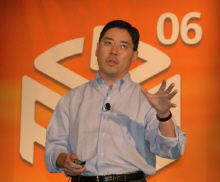AlwaysOn: U.S. lags China and Europe in new technology adoption


"Nobody gets fired for window dressing a legacy system, but they get fired for technology project failures," Suh explained. U.S. CIOs are more prone to think about 18 to 24 month development ordeals, hundreds of people dedicated to a project and millions of dollars, rather than plowing new ground with SOA and Web services that is ultimately less painful or intrusive.
"As U.S.-based companies grapple with SOA and Web services, they think of it as wall paper on wall paper, a way to wrap and more easily integrate legacy systems, in a gradual way," Suh said. "But they are not thinking in terms of changing fundamental business processes. They are walking before they run and trialing technology in limited areas. There is an opportunity for companies to drive productivity to new levels, by forcing intelligent self service into employees, suppliers and customers. It's easier if you have fresh systems. The U.S. is in a vicious circle, taking safe bets to wrap legacy systems, but too much time is spent running and fixing those systems. With fresher systems, investing more steadily and heavily in new technology, companies find run and fix less a part of the total budget, and can spend the savings to innovate more with new technology. Regrettably a lot of executives in the U.S. don't believe the technology is ready and mature, but that's not how they are talking in Shanghai."
According to the Accenture survey of CIOs at 500 companies, about 40 percent of U.S. companies are committing major resources to changing business operations and building new systems, compared to 70 percent in China. Here is some other data from the survey: